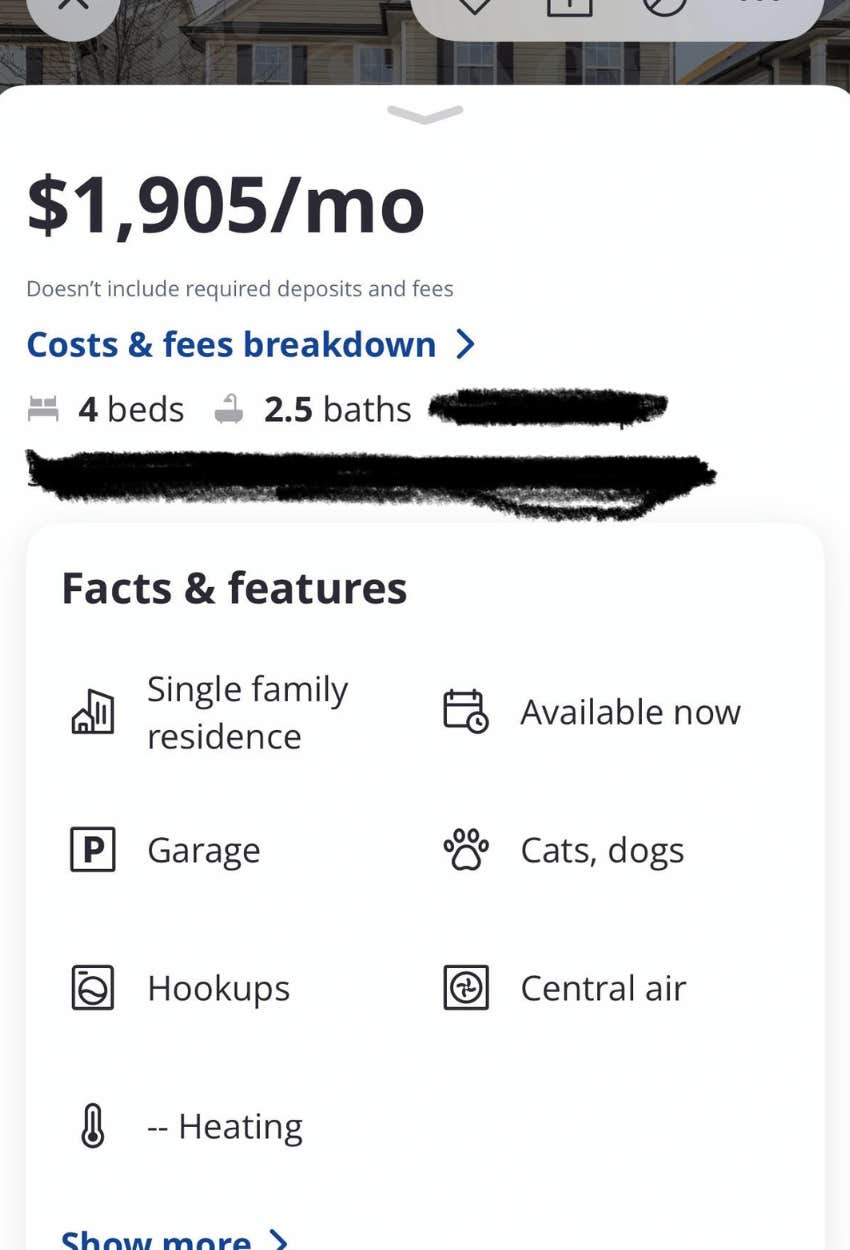Renters Forced To Move Out After Huge Rent Increase Discover Landlord Lowered It When They Couldn't Find New Tenants
A classic case of corporate landlord greed.
 Photos: Andy Dean Photography, SIphotography from Canva Pro | Design: YourTango
Photos: Andy Dean Photography, SIphotography from Canva Pro | Design: YourTango According to the 2023 American Community Survey, the cost of renting spiked in 2023, growing faster than the average cost of buying a home for the first time since 2011. Unfortunately, this has caused some people to be priced out of homes they've rented for years, as was the case for one Reddit user who shared their story of rent hikes forcing them to move out.
For a year, these renters happily paid $1950 a month for their apartment.
But then came the dreaded notification: a rent increase to $2200. The rental company claimed this was “market value,” but the tenants were not convinced. They knew that their neighborhood didn’t support such a spike and tried to negotiate a more reasonable increase — $2000 seemed like a fair compromise. After all, why pay more when you’re already settled in and happy?
But the rental company wouldn’t budge. They insisted on their price, claiming it was “market value,” a phrase so overused it might as well be their corporate mantra. The tenants weren’t buying it, and with no wiggle room in sight, they made the tough decision to move. Cue the moving trucks and endless packing boxes.
 Ketut Subiyanto | Pexels
Ketut Subiyanto | Pexels
The rental company continued reaching out to the tenants in hopes they would change their minds.
The rental company, apparently hoping for a last-minute change of heart, called once a week in the lead-up to the move, probably hoping to hear, “Actually, $2200 sounds great, where do I sign?”
But the tenants stayed firm. They weren’t willing to pay an inflated price for a place they didn’t feel was worth it.
"I repeatedly say 'I don’t want to move. Keep our rent the same or even just go to $2K and we’ll stay,'" the renter wrote in the Reddit post, explaining that the rental company refused to budge on the rent.
After moving out, the tenants noticed the rent actually decreased for their original home.
And here’s where the plot thickens. Just a month after the tenants had packed up and moved on, the property was re-listed at $1905 — $45 less than what they had been paying.
 Reddit
Reddit
So, the landlord’s grand plan to hike the rent was essentially an exercise in futility. They had forced out tenants who were willing to stay at a lower price, only to lower the rent themselves when they couldn’t fill the unit. Oops.
It was a classic case of “I told you so,” and while the tenants weren’t about to say “I told you” directly to the landlord, it certainly crossed their minds. They had predicted this very scenario, and sure enough, it unfolded exactly as they thought it would. The landlord had tried to squeeze out more money but ended up losing both the tenants and the desired price.
Unfortunately, tenants being priced out of rentals is becoming more common with corporate landlords.
According to research by JW Surety Bonds, a national surety bond and insurance service, 50% of renters in America currently rent from corporate landlords. These corporations have the funds and manpower to buy up all the properties they want, and in recent years, have done just that.
"We have an incredibly effective system for acquiring homes one at a time," Chaz Mueller, then-CEO of corporate landlord Progress Residential, explained on a 2021 episode of the Leading Voices in Real Estate podcast. "Within a couple of hours of the home going on the market. So we're able to analyze it very quickly, make an offer. Our offers are all cash, very flexible closing, basically whenever the seller wants to move out."
These deals are hard for homeowners to pass up, and this buying power has given corporate landlords a significant market share of single-family homes. They can then, in turn, largely control rental prices as renters have less room to negotiate.
As JW Surety Bonds' research shows, 32% of tenants renting from corporate landlords faced rent increases at least three times in the last three years, which is twice the rate of those with private landlords.
While some cities have begun fighting the prevalence of corporate landlords with legislation, unfortunately, it'll be too late for some tenants who've already had to find the money to cover rent hikes.

